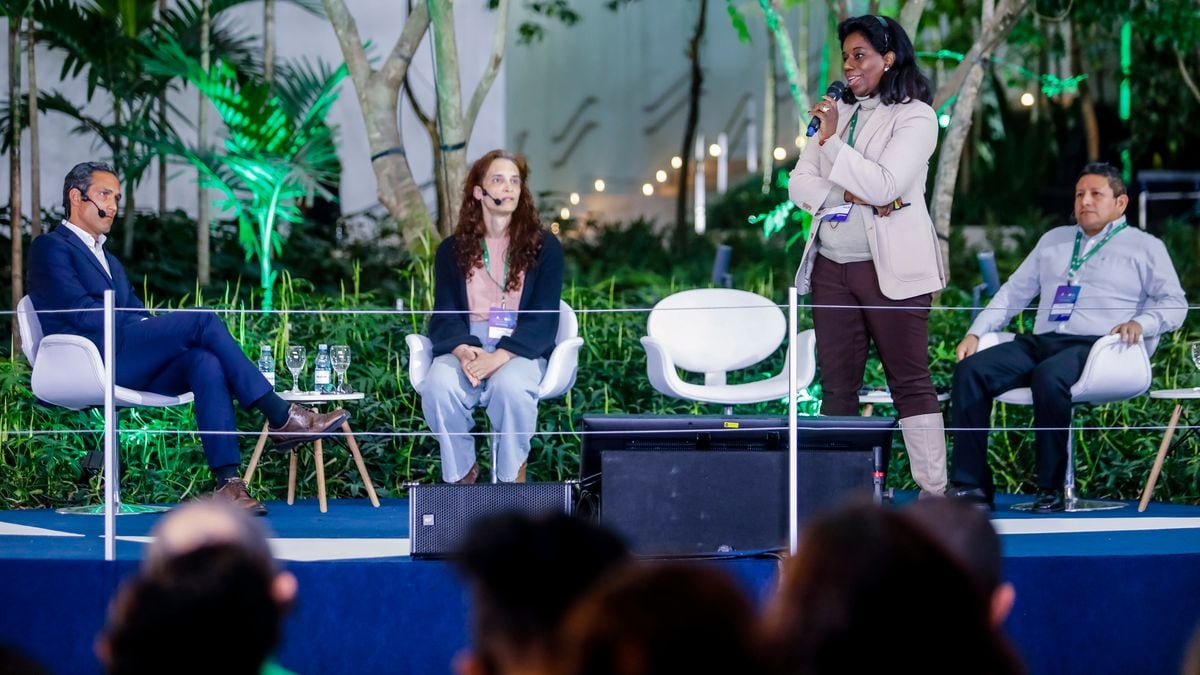How to improve access to health in Latin America?
The answer to this question inevitably goes through the resolution of a fundamental problem in the region: inequality.
Given this diagnosis, the seventh edition of the Latin American Forum on Quality and Safety in Health proposed a debate on how to seek more equitable access, going through fundamental issues such as socioeconomic inequalities and environmental imbalance, which have a direct impact on the health of populations .
For four days in September, the forum organized by the Sociedade Beneficente Israelita Brasileira Albert Einstein and the Institute for Healthcare Improvement (IHI) in São Paulo, Brazil, brought together 2,630 people (1,910 of them in person), including leaders from the health sector, professional health specialists and students from 18 countries such as Argentina, Brazil, Chile, Colombia, Peru, Uruguay, the United States, Venezuela and Ecuador, to discuss the topic "Beyond ESG" (abbreviations in English of practices environmental, social and governance).
Miguel Cendoroglo Neto, superintendent director of medical and hospital services at Einstein.Fábio H. Mendes (Fábio H. Mendes)
“When people get sick, it is the health sector that absorbs this blow, it is at this end that the rope normally breaks.
Therefore, we believe we have a responsibility to tell other industries to look at ESG issues, to see beyond their walls,” said Miguel Cendoroglo Neto, MD, superintendent director of medical and hospital services at Einstein.
The call for the reduction of gaps and inequalities in terms of access and provision of health is concerned, insofar as it considerably affects vulnerable populations;
ethnic, racial or sexual minorities, triggered various approaches, debates and proposals, where generational diversity and specializations encouraged endless approaches.
Fabio H. Mendes
In this sense, he highlighted the inclusion of a letter to the CEOs present on the first day of the forum by young medical students, who called for immediacy and urgency, urging collective efforts for structural changes in their environmental, social and security commitments. governance.
Against this background, during the discussion table on equity and ESG, Kedar Mate, president of the IHI in the United States, stressed that equity is also strongly linked to environmental change and that the challenge around pollution and spending in the sector must turn.
"Health cannot continue to lead us to adverse events," said Mate.
To do this, he said, "it is necessary to embrace quality, change culture and consider that conscious consumption is also part of the transformation that makes it possible for a hospital to be a space conducive to comprehensive health."
Also, in the event different actions focused on greater equity were a demand presented by experts from several countries in the region.
Marcelo Pellizzari, director of the Department of Quality and Patient Safety at Hospital Universitario Austral in Buenos Aires, highlighted the great disparities in access to health care in his country.
“In Argentina, there are cities where there are a lot of MRI and tomography equipment, and places where there is no radiology equipment,” he said.
“We have to give each person what they need to solve their clinical condition, and that is not happening.
The challenge is very deep and very basic at the same time.
And it is a great responsibility of all.”
People and community at the center
In a conference, Jesús Peinado, director of Program Management at Partners in Health in Peru, pointed out that the multifactorial challenges inside and outside the field of ESG association must weigh the well-being of people at the center at all times. , understanding and respecting the community served.
“The current scenario brings us more workload, but that has to give us more momentum.
We have to start fighting inequality right now.
It is likely that we will not close it and we will leave a task to the following generations, but it has to start and it is something in common for Latin America (...).
And it's easy to turn your face and say 'that's not my population', but it's not like that.
The community is all of us”, stressed Jesús Peinado.
For Dr. Natanael Gomes, strategic member of the Working Group on Sexuality and Gender of the Brazilian Society of Family and Community Medicine (SBMFC), equity in health implies that, ideally, all people should have the opportunity to access care quality medical.
“That is why it is so important to discuss access and inclusion, dealing, for example, with humanized care, quality and safety in health care for people with intellectual disabilities, essential protocols for health care of the LGBTQIA+ population, ESG and nutrition and many other points,” said Gomes, who also fully trusts the possibility of a more inclusive and non-judgmental health.
“The ESG is not easy, since it proposes a discomfort, a change, a different way of thinking and working from the transformation of the system to be able to face the obstacles of combating poverty, access to a worthy preventive consultation, as well as reducing consumption. of processed food or to have more opportunities of various kinds”, highlighted the specialist.
Olesya Vynny K of Salutas Clinic, in Lviv, Ukraine.Fábio H. Mendes
For her part, the Ukrainian doctor Olesya Vynny K from Salutas Clinic, in Lviv, who participated in health resilience from the possibilities and limitations that the armed conflict imposes on her country, said that the work of transforming the health system must always putting transparency, truth and joint and selfless humanitarian work at the forefront – areas where resilience and empathy, as well as ethics and responsibility are necessary.
“All talk about (health) security is useless while the world is facing that kind of threat,” Olesya Vynny said, referring to the Russian attacks that have devastated her country for more than 200 days.
"Doing our job as doctors, as well and as quickly as possible, has become our only goal," said the doctor.

